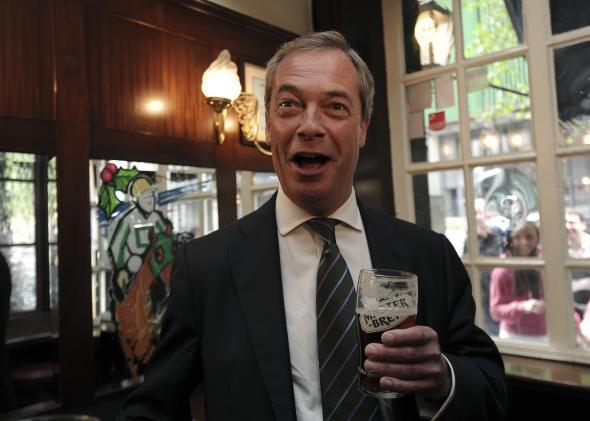The success of fringe Euroskeptic parties is understandably the main headline of Sunday’s European Parliament elections. Marine le Pen’s far-right Front National won 25 percent of the vote in France, putting it well ahead of the center-right UMP and the ruling Socialists. Nigerl Farage’s U.K. Independence Party was the top vote-getter in Britain. The anti-immigrant Danish People’s Party won in Denmark. In Greece the far-left Syriza party won, with the neo-Nazi Golden Dawn taking about 10 percent of the vote and three seats in the parliament.
But before panicking about the motley crew of extremists and racists on their way to Brussels (and sometimes Strasbourg!) it’s worth pointing out that Euroeskeptic parties are still expected to hold only about 143 out of the body’s 751 seats. The overall winner of the election is the center-right European People’s Party, meaning that the middle-of-the-road Jean-Claude Juncker, Luxembourg’s former prime minister, seems to be the most likely candidate for the European Commission presidency.
The Euroskeptic bloc doesn’t really exist, comprising parties from vastly different ends of the political spectrum. Even within the leading right-wing parties, there’s not much solidarity, with Farage having distanced himself from Le Pen ahead of the election.
(It also wasn’t a clean sweep for the far right. Geert Wilders’ Islamophobic Freedom Party in the Netherlands and Hungary’s ultranationalist Jobbik both had bad nights. Italian voters surprised many by bucking trends and delivering a big win to the center-left Democratic Party.)
One of the great political ironies of 21st-century politics is that the EU parliament, the most ambitious experiment ever conducted in multinational democracy, has been an enormous boon to hard-line nationalists. In EU elections, turnout is low, and because the stakes are (correctly) perceived as being lower, people are more likely to cast protest votes. This means that parties like the FN and UKIP with little to no chance of winning national elections become leading contenders. The best chance euroskeptics have of electoral success is in European elections.
Overall, voter turnout was 43.1 percent—about the same as the last elections in 2009. In Eastern Europe the big story was voter apathy, with voter turnout far lower than average throughout the region. Slovakia had the dubious honor of Europe’s lowest turnout with only 13 percent. In Poland it was less than 23 percent. In Croatia, which joined the union just last year, it was only 21 percent. The fact that these countries, which joined the EU with such enthusiasm so recently, are now so apathetic about it is probably as worrying for the future of the union as the protest votes cast in Western Europe.
Mainstream political leaders have done a singularly bad job of making the case for a united Europe to voters, but the election ought to be a wakeup call that restoring the union’s credibility with the European public is now the top priority.
The fact that these leaders are meeting today in Brussels for what appears, as Gideon Rachman put it, to be another “incomprehensible argument about the next head of the commission and the relative powers of EU institutions,” is not exactly encouraging.
